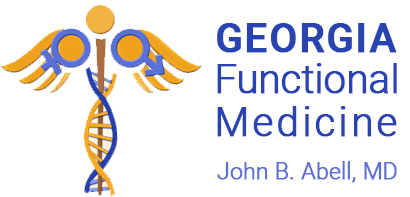The lifetime risk of a woman developing breast cancer is currently about 1 in 8 women.
I can remember only a few short years ago when this risk was approximately 1 in 12-15 women. I’m going to talk about some of my literature research as well as lectures regarding what we can do about this. A review of 81 studies on breast cancer estimated that nearly 40% or more of breast cancer could be prevented with basic modification of lifestyle, only. J. Clinical Oncology. 2009. Recommendations included a healthy weight, less alcohol, more exercise and breast-feeding.
The #1 risk factor for breast cancer is being overweight, constituting a threefold increased risk of breast cancer. The risk of triple negative receptor breast cancer is most prevalent in those in the highest weight groups of patients.
Adequate sleep is important. Sleeping less than 6 hours increases one’s risk 10% but sleeping greater than 8 hours decreases the risk 72%! Related to this, was a possible association of night shift work which may increase the risk of breast cancer. Institute of Medicine, 2011.
Chronic stress with associated elevation of nighttime cortisol and low DHEA is associated with increased risk of breast cancer.
Toxins likely play a role in breast cancer risk. More research is being done in this field. There are hundreds of toxic chemicals in our environment that mimic effusion and bind the estrogen receptor. There are entire waterways in the United States where there are no anatomically normal males of the fish species left. In July 2012, the FDA banned BPA in baby bottles and sippie cups. Over 130 studies have linked breast cancer, obesity and other health problems to toxins. The President’s Cancer Plan.
Side note: Cell Cycle August, 2012: Giving metformin to glucose starved cells not only killed breast cells themselves, but the stem cells as well. That’s huge.
There is a clear correlation between heavy alcohol use and increased risk of breast cancer. A recent Harvard study showed that 3-6 alcoholic drinks per week increased one’s risk by 15%. Two drinks daily increased the risk by 51% compared to women who never drank. JAMA Nov 2011.
What about drugs to prevent breast cancers? Aromatase inhibitors have been used and suggested for this use. But if you look at the raw numbers, you need to treat 94 women for 3 years to prevent one breast cancer. The absolute reduction in risk is 2-3% down to 1% with no drugs. Side effects include 3 times normal bone loss, arthritis, hot flashes and on and on. Are the benefits worth the risks?
And so, can we use nutrients or neutraceuticals to help in the prevention?
- Vitamin D levels over 52 ng/ml are associated with 50% lower risk breast cancer compared to levels less than 12ng/ml. This is one of the cheapest forms of supplementation to potentially reduce breast cancer risk. Per Dr. Cannell, chairman of the Vitamin D Council: It takes 5000 units daily to get 95% of the population to a level of 50. Have your Vitamin D level checked and supplement to obtain a level over 50!
- Iodine deficiency is very common due to lack of iodized salt use. Iodine deficiency is actually a promoter of cancer. Continuous iodine supplementation to cancer prone rats cut breast tumor rates 2 ½ times. Be careful not to take too much! There are many regimens out there that promote high doses of iodine. It is the author’s opinion after years of studying different experts that around 1000mcg of iodine daily is the upper limit of recommended dosing.
- Omega 3 fish oil has been shown in studies to decrease breast cancer risk 32%-50%.
- Ground flax seed beneficially affects estrogen metabolism.
- Phytonutrients: Sulphoraphane (a broccoli derivative) is amazing and one of the best supplements one can take, especially while on hormone replacement therapy. It Inhibits breast cancer stem cells!
- Resveratrol is also important in prevention as well as in active breast cancer. It helps reverse problems with BRCA1 and probably BRCA2. These women can’t repair DNA damage. One needs to be careful of the form of Resveratrol taken, as there are differences in bioavailability.
- Curcumin is beneficial in all three stages of breast cancer: initiation, promotion and progression. Again, the preparation is important for absorption.
- Quercetin, EGCG (green tea extract), Selenium, Milk Thistle, Rosemary and Lycopene offer additional liver detoxification support.
- Recently, Cavalieri, et al reported that the combination of N-acetyl cysteine and Resveratrol offered significant benefits when there is too much of a potentially harmful estrogen metabolite, 4OH estrone. This is one of the estrogens I am particularly interested in as far as breast cancer risk, and test for frequently.
- DIM (DiIndoylMethane) is another very good supplement and some physician experts in bioidentical hormone replacement highly suggest their patients take this along with BHRT.
- CoQ10 deficiency has been shown to increase a woman’s risk of breast cancer 800%. The CARE STUDY, showed a 33% increase risk of breast cancer in statin users. Statins such as Zocor lower CoQ10 levels.
- Fermented Wheat Germ Extract (FWGE), very good studies in animals show breast cancer reduction better than drugs. It has been used in patients with personal history of breast cancer to good results.
- Ellagic Acid prevents proliferation of breast cancer stem cells in mouse models.
- Selenium, as recently noted by The American Cancer Society, is important in risk reduction of many cancers.
- Many more nutrients and supplements have been studied, but will not be elaborated on further here. (Calcium d-Glucarate, probiotics, many mushroom extracts, adequate nutrients such as zinc, selenium, iron, copper, Vitamins A, C, E and B6 and folate.)
- Finally T3!!! Has many anti-cancer effects.
John B. Abell MD
